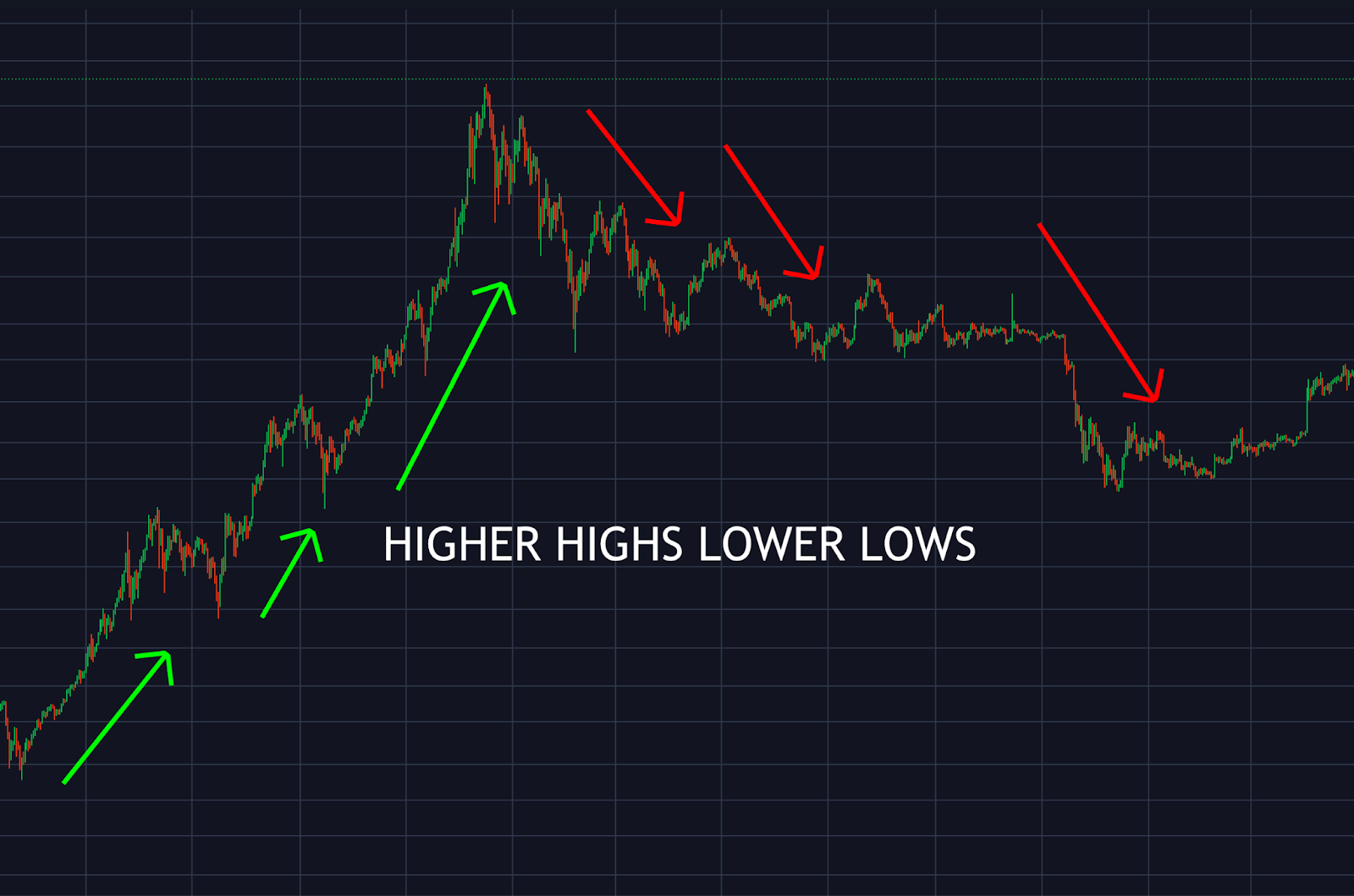
Power of Holding Stocks: Benefits Explained
A long-term investment strategy entails retaining investments for more than a full year. This strategy includes holding assets like bonds, equities, exchange-traded funds (ETFs), mutual funds, and more. It necessitates discipline and perseverance to adopt a long-term approach. That's because investors must be able to take on a certain level of risk while they wait for higher rewards down the road.
Investing in equities and holding them is one of the greatest methods to develop wealth over the long term. For example, the S&P 500 experienced annual losses in only 13 of the last 50 years, extending back to 1974, demonstrating that the stock market generates returns much more often than it doesn't.
Better Long-Term Returns
The term asset class refers to a specific category of investments. They share the same characteristics and qualities, such as fixed-income assets (bonds) or equities, which are commonly termed securities. The asset class that's ideal for you depends on several factors, including your age, risk profile and tolerance, investment objectives, and the quantity of capital you have. But which asset segments are ideal for long-term investors?
If we look at several decades of asset class returns, we discover that equities have typically outperformed almost all other asset classes. The S&P 500 returned a geometric average of 9.80% per year between 1928 and 2023. This compares favorably to the 3.30% return of three-month Treasury bills (T-bills), the 4.86% return of 10-year Treasury notes, and the 6.55% return of gold, to mention a few.
Emerging markets have some of the highest return potentials in the equity markets, but also contain the highest degree of risk. This class historically earned high average annual returns but short-term fluctuations have impacted their performance. For instance, the 10-year annualized return of the MSCI Emerging Markets Index was 2.66% as of Dec. 29, 2023.
Small and large companies have also delivered above-average returns. For instance, the 10-year return for the Russell 2000 index, which evaluates the performance of 2,000 small companies, was 7.08% as of Jan. 26, 2024.4 The large-cap Russell 1000 index had an average return of 12.39% for the last 10 years as of the same date.
You Ride Out Highs and Lows

Stocks are considered long-term investments. This is, in part, because it's not unusual for equities to decline 10% to 20% or more in value over a shorter period of time. Investors have the opportunity to weather out some of these highs and lows over a period of many years or even decades to generate a higher long-term return.
Looking back at stock market returns since the 1920s, individuals have rarely lost money investing in the S&P 500 for a 20-year time period.7 Even considering setbacks, such as the Great Depression, Black Monday, the tech mania, and the financial crisis, investors would have experienced gains had they made an investment in the S&P 500 and held it uninterrupted for 20 years.
While past results are no guarantee of future returns, it does suggest that long-term investing in equities generally generates positive results if given enough time.
Decisions May Be Less Emotional, More Lucrative
Let's face it, we're not as tranquil and rational as we profess to be. In fact, one of the inherent faults in investor behavior is the tendency to be emotive. Many individuals claim to be long-term investors until the stock market begins declining, which is when they tend to relinquish their money to avoid additional losses.
Many investors fail to remain committed in equities when a revival occurs. In fact, they tend to step back in only when most of the gains have already been achieved. This type of purchase high, sell low behavior tends to impede investor returns.
According to Dalbar's Quantitative Analysis of Investor Behavior study, the S&P 500 had an average annualized return of 9.65% during the 30-year period ending Dec. 31, 2022. During the same time frame, the average equity fund investor experienced an average annual return of about 6.81%.
There are a few causes why this occurs. Here are just a handful of them:
-
Investors have a dread of regret. People often fail to trust their own judgment and follow the clamor instead, particularly when markets decline. People tend to fall into the fallacy that they'll lament holding onto stocks and lose a lot more money because the equities decline in value so they end up selling their holdings to alleviate that dread.
-
A perception of pessimism when circumstances shift. Optimism prevails during market rallies but the opposite is true when things turn negative. The market may experience fluctuations because of short-term unanticipated disruptions, such as those related to the economy. But it's crucial to consider that these disruptions are often short-lived and things will very likely turn around.
Investors who pay too much attention to the stock market tend to handicap their odds of success by attempting to predict the market too frequently. A straightforward long-term buy-and-hold strategy would have yielded far superior results.
Lower Capital Gains Tax Rate
Profits that result from the transfer of any capital assets end up in a capital gain. This includes any personal assets, such as furniture, or investments like equities, bonds, and real estate.
An investor who sells a security within one calendar year of buying it gets struck with taxes on any gains at a rate that's the same as for ordinary income. These are referred to as short-term capital gains. Depending on the individual's adjusted gross income (AGI), this tax rate could be as high as 37%.
Any securities that are sold after being held for more than a year result in long-term capital gains. The proceeds are taxed at a maximum rate of just 20%. Investors in lesser tax brackets may even qualify for a 0% long-term capital gains tax rate.10
More Cost-Effective

One of the primary benefits of a long-term investment approach is money. Keeping your securities in your portfolio longer is more cost-effective than regular purchasing and selling because the longer you hold your investments, the fewer fees you have to pay. But how much does this all cost?
As we discussed in the last section, you save on taxes. Any gains from stock transactions must be reported to the Internal Revenue Service (IRS). That ends up increasing your tax liability, which means more money out of your pocket. Remember, short-term capital gains can cost you more than if you hold your securities for an extended period of time.
Then there are trading or transaction fees. How much you pay depends on the type of account you have and the investment firm that manages your portfolio. For instance, you may be charged a commission or markup, where the former is deducted when you purchase and sell through a broker while markups are charged when the transaction is directed through their own inventory. These costs are charged to your account whenever you trade securities. This means your portfolio balance will decrease with every sale you make.
In 2024, many active investors make trades through online brokerages that provide fee-free transactions. In these cases, you may not incur costs to finalize some or all of your transactions. However, it's still essential for investors to measure out the value of the time they expend on transactions in comparison with the difference in performance between an active and a longer-term, buy-and-hold type of strategy.
Benefit From Compounding With Dividend Stocks
Dividends are corporate proceeds distributed by companies with a track record of success. These tend to be blue gems or defensive securities. Defensive equities are companies that do well regardless of how the economy performs or when the stock market declines.
These companies pay regular dividends—usually every quarter—to eligible shareholders, which means that you get to share in their success. While it may be alluring to cash them out, there's a very good reason why you should reinvest the dividends into the companies that actually pay them.
If you own any bonds or mutual funds, you'll know about how compound interest affects your investments. Compound interest is any interest calculated on the principal balance of your stock portfolio and any prior interest you earned. This means that any interest (or dividends) that your stock portfolio accumulates compounds over time, thereby increasing the quantity in your account in the long run.
Read Also: Maintaining Stocks For Your Business
Best Types of Stocks to Hold for the Long-Term
There are several factors to consider when you want to purchase equities. Consider your age, risk tolerance, and investment objectives, among other factors. Having a grasp on all of this can help you figure out the kind of equity portfolio you can construct in order to meet your objectives. Here's a general guide you can follow as a starting point that you can modify to your own situation:
-
Choose index funds. These are ETFs that monitor specific indexes, such as the S&P 500 or the Russell 1000, and trade just like equities. But unlike equities, these funds come with a lower cost and you won't have to select and choose specific companies in which to invest. Index funds give you equivalent returns to the indexes they monitor.
-
Consider dividend-paying securities. These types of securities can help add value to your portfolio, particularly when dividends are reinvested.
-
Companies with high growth can enhance your portfolio. Growth equities tend to be associated with companies that are able to generate a significantly higher revenue and at a quicker rate than others. They are also better equipped to deliver robust earnings reports. Keep in mind, though, that this degree of growth comes with a higher level of risk, so you'll have to be a little savvier than neophyte investors if you want to go this route.
As always, it's a good idea to consult with a financial professional, particularly if you're new to the investment world.


